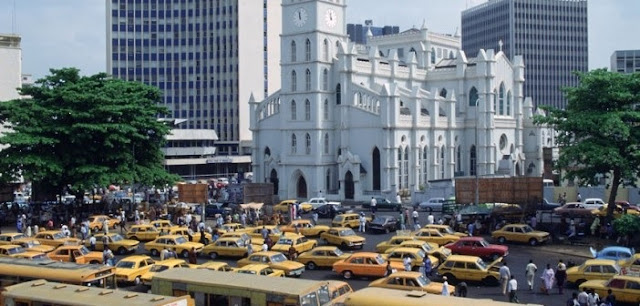
Nigeria's central bank has announced that it will halt all US dollar sales to bureau de change operators, as the country struggles to cope with a crippling shortage of hard currency. Under the new measures, Nigerian banks will also be able to accept dollar deposits.
The collapse in the oil price over the past year has gutted Nigeria's foreign exchange earnings. Oil typically accounts for around 70% of government revenues, while the country imports much of its food and refined fuel.
The Central Bank of Nigeria has already put in place a number of currency controls aimed at reducing the flow of hard currency out of the economy, including limiting the availability of dollars for importers of a range of goods from rice to private jets. Holders of naira bank accounts are only able to spend or withdraw $300 at a time overseas.
The CBN has so far resisted any devaluation of the naira, and has spent billions from the country's reserves maintaining the official exchange rate of between 197-199 naira to the dollar. On the black market the exchange rate is around 270 to the dollar.
Faced with the shortage of foreign exchange, traders say that they have fallen into arrears with their international suppliers. The new restrictions will make it even more difficult for importers to cover their dollar positions, which in turn will increase pressure on consumers.
"It isn't going to be pretty," says John Ashbourne, Africa economist at Capital Economics, who points out that the bureaux de change are the main channel for ordinary Nigerians to access foreign currency.
"It's important to remember that the [official]rate only exists if you can deal directly with the central bank. Any actual people who want to buy US dollars have to use the [bureaux de change]. Reducing the flow of US dollars to the money changers will create a shortage in the currency market that most people actually use. While this isn't, on paper, a devaluation, it has a similar effect on the purchasing power of the naira in your pocket."













No comments :
Post a Comment